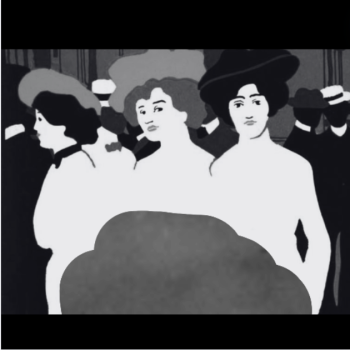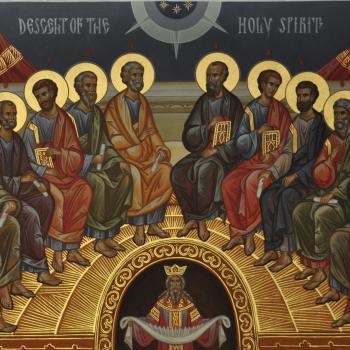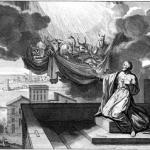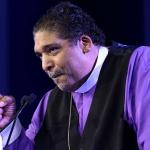The Adventurous Lectionary – The Eighth Sunday after Pentecost – July 23, 2023
Genesis 28:10-19a
Psalm 139:1-12, 23-24
Romans 8:12-25
Matthew 13:24-30, 36-43
Today’s readings proclaim that he world is chock full of divinity. We live in a God-filled universe; that is the practical meaning of divine omnipresence. You can encounter the holy in the most unlikely places. Thin places, joining heaven and earth, abound for those for whom the doors of perception have opened. Life is messy, but it can also be spiritually full in all its complexity when we open our senses to divinity within and beyond us. God is in all things, and all things are in God! God can come to us in a dream, in the depths of our experiences, even negative ones, and in the ambiguous mixing of good and evil, and positive and negative.
During the many years, l lived on Cape Cod, I walked on the beach virtually every morning. Like the return of the osprey, every summer, a car returned to Cape Cod, sporting a bumper sticker, that “Keep awesome alive.” I don’t know his or her intent, but my inner response is “Amen. Let me stay awake to the beauty of my home of sea and sky, pond and marsh.”
God in all things, all things in God! The heavens declare the glory of God and so do dreams. “Surely God was in this place, and I did not know it! How awesome is this place.” So proclaims the surprising mystic Jacob the Trickster. Jacob finds himself in a thin place where heaven and earth are joined and angels ascend and descend on a ladder to the heavens. It is interesting to note that the angels “ascend” to heaven. Earth is filled with divinity. Earth has its own angels. God is not far off or trapped in a far off heaven. Divinity is on earth as it is in heaven. You don’t need to go to heaven to find God; heaven is in this place! Heaven is right where you are!
Jacob is morally unqualified for such a mystic encounter. Yet, God presents inspiration to all, regardless of preparation. The whole earth is filled with God’s glory, as Isaiah discovers, and even a dishonest businessman or bloviating politician can be surprised by divinity! God’s glory can even come to us.
Psalm 139 is one of the most majestic pieces of spiritual literature. The Psalmist discovers God everywhere. No place is without God’s presence. Even when we run away from God, we run into God’s hands. In the heights, God is there; in the depths, God is also present. God knows each of us fully, but God’s knowledge of us is liberating, not judging. Even when we run away from God or fall into deep depression, God’s light still surrounds us and we are in God’s care. Psalm 139 is a hymn to divine omnipresence, and the only condition of divine omnipresence is the recognition that God is everywhere and in all things. God searches and knows us. Yet, God’s knowledge is not out to get us, or punish us, it is out to love us. We can feel the joy of being known and loved, and receiving guidance appropriate to our time and place.
Jacob’s encounter with holiness comes by pure grace. It comes, you almost can say, in spite of himself. We don’t know the origins of the Psalmist’s experience. Did the Psalmist need to cultivate the experience of divine presence through spiritual practices? There are times grace simply happens. But, Damascus Road experiences also emerge – and are grounded for the long haul – through opening to God by prayer, meditation, hospitality, service, worship, and study. The Psalmist’s self-awareness – the Psalmist’s awareness that God searches and knows him – may be the catalyst for his own mindful awareness of God moving in his cells and his soul.
The reading of Romans 8 continues the hymn to divine omnipresence. God speaks within us, inspiring us to seek our original wholeness. God also speaks through every living thing. All creation lives in hope for transformation, sharing in the same hope for God’s realm of Shalom. There is no dividing line between God and the world or human or non-human life. We may be the crown of creation, but we share the breath of life and the movements of the Spirit with all reality. Inspired by the Spirit, each thing in its own way leans in a God-ward fashion. Joined in an interdependent ecology of hope, all creation seeks fulfillment in relationship with the Creator.
There is a clear affirmation of creation theology and nature mysticism within the words of Romans 8. This is surely God’s world – and all things declare divinity – but only those with eyes to see and ears to hear can discern the holiness embedded in the non-human world. Yes, we can find God in nature, at the seashore and on starry nights, and this is good. But, a life of prayer makes such moments of holiness the norm rather than exceptional in our lives. (For more on creation spirituality, see Bruce Epperly, “Praying with Process Theology: Spiritual Practices for Personal and Planetary Transformation,” Process Century Press; “Process Theology: A Guide for a Perplexed,” T&T Clark; “Process Theology: Embracing Adventure with God,” Energion; “Jesus: Mystic, Healer, and Prophet,” Anamchara Books.)
Romans 8 presents the vision of an unfinished world. The non-human world has been marred by human greed and faithlessness. Our “sin” has rendered the world a garbage dump, as Pope Francis avers. There is hope and longing for healing, but this healing must come through us – through our spiritual transformation embodied in acts of kindness toward the non-human world – as well as divine activity. We must become God’s agents of planetary healing.
Still, as Jesus’ parable notes, growth is ambiguous, whether personal, communal, or global. The wheat and the tares are mixed: this is not just a matter of righteous and unrighteous persons – the latter being the “evil ones” – but our own personal righteousness and unrighteousness. Life is ambiguous and so are we. We are holy, but also wholly ambivalent and ambiguous at times. We are saints who also are sinners. Spiritual stature comes from recognizing the interdependence of life, and seeking to embrace the whole of our lives in light of God’s grace. If we destroy the tares, the weeds, the wheat will eventually die. Our power and wisdom come from embracing the whole, not denying the parts. In the spirit of Psalm 139, darkness has a light of its own, for our darkness also can be a vehicle of creative transformation. God works within ambiguous persons, like Jacob; ambiguous institutions, like the church; and ambiguous powers, like our democracy to bring about healing, if we are attentive to the angels – the messengers of healing and wholeness in our midst.
God is in this place. God is in the mixture of wheat and tares; flowers and weeds. God comes to us on the darkest night, when we like Jacob recognize our brokenness. God cries out in wounded nature. Wherever we are, God is present; and wherever we are, it is Beth-El, the house of God. This is awesome, and gives us grounds for hope that we can be transformed, that we can change our behaviors, and begin anew. This also inspires us to be agents of mystical experiences for others, creating situations – and challenging others – so persons can experience their full potential as God-loved and inspired.
++++
Bruce Epperly is a pastor, professor, spiritual guide, and author of over seventy books, including JESUS – MYSTIC, HEALER, AND PROPHET; THE ELEPHANT IS RUNNING: PROCESS AND OPEN AND RELATIONAL THEOLOGY AND RELIGIOUS PLURALISM; PROPHETIC HEALING: HOWARD THURMAN’S VISION OF CONTEMPLATIVE ACTIVISM; MYSTIC’S IN ACTION: TWELVE SAINTS FOR TODAY; WALKING WITH SAINT FRANCIS: FROM PRIVILEGE TO ACTIVISM; MESSY INCARNATION: MEDITATIONS ON PROCESS CHRISTOLOGY, FROM COSMOS TO CRADLE: MEDITATIONS ON THE INCARNATION, and THE PROPHET AMOS SPEAKS TO AMERICA. His most recent books are PROCESS THEOLOGY AND THE REVIVAL WE NEED and TAKING A WALK WITH WHITEHEAD: MEDITATIONS WITH PROCESS-RELATIONAL THEOLOGY. He is currently serving as Bridge Minister at Westmoreland Congregational United Church of Christ in Bethesda, MD, and can be reached at drbruceepperly@gmail.com.















